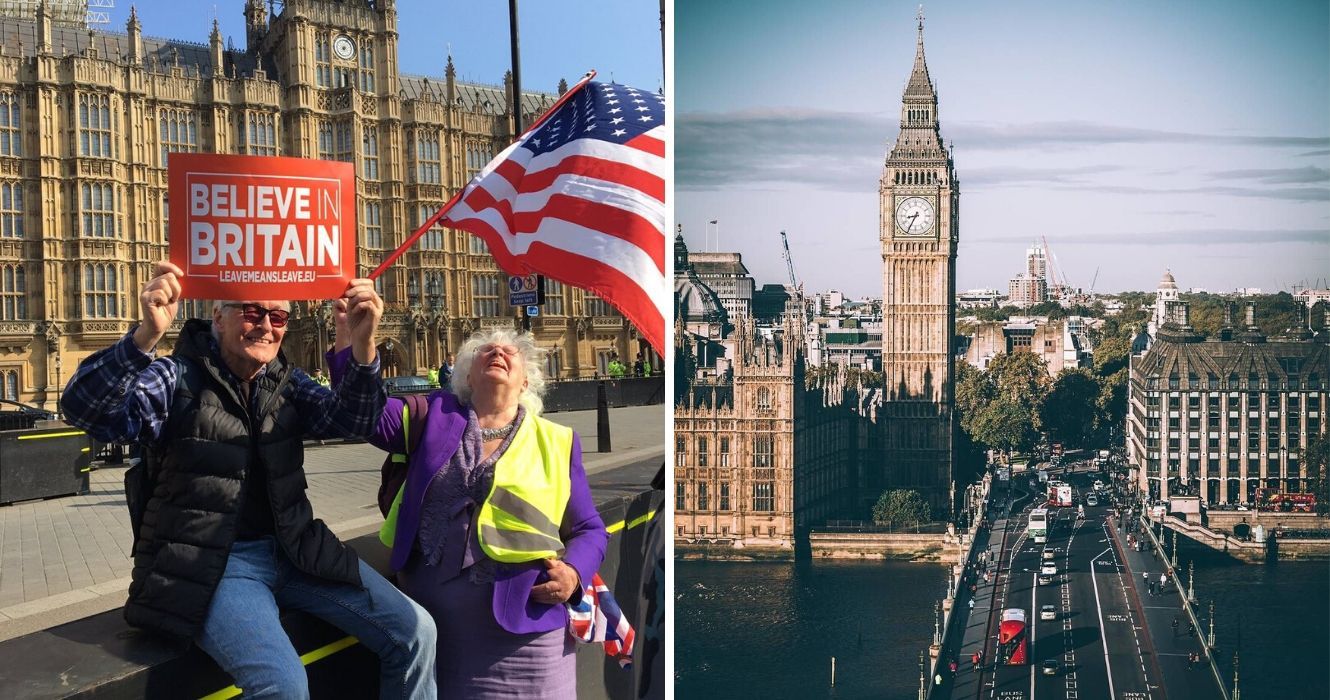On January 31, 2020, Britain left the European Union after nearly three years of planning and discussion. Now, the United Kingdom has entered a transition period which should take 11 months. Brexit has left a lot of tourists confused about what effect the withdrawal will have on their travel plans to the United Kingdom and Europe. Keep reading to find out what you need to know about travel in the post-Brexit era.
Will Traveling To The U.K. Really Be Different?
Brexit has dominated the headlines for the past three years, and while the change will certainly have its impacts, the effect on U.K. travel won’t be huge. At least, not for travelers coming from the United States.
Americans did not need visas to visit the United Kingdom before Brexit and that hasn't changed As always, to enter Britain Americans need a passport that will remain valid for the extent of their time in Britain. It should be noted that if Americans plan on visiting a European country in the Schengen area and they’ll be departing from Britain then they’ll need a passport that is valid for an additional six months after their trip.
class="related-single">
For any Americans planning on visiting Europe after Britain, this is the most important point to take note of. If the country you’re visiting falls in the Schengen Zone, it’s imperative that your passport is valid for at least six months after your trip. Without a passport that has an extra six months' validity at least, you won't be permitted to depart from Britain and travel to any Schengen Zone countries. Some of the most popular countries in the zone include Italy, France, Germany, Span, Netherlands, Belgium, Switzerland, Portugal, and Austria.
The travel requirements for Britain have always been different for Americans from the travel requirements to Europe, even before Brexit. Even as part of the European Union, Britain was not part of the Schengen Zone, where international border checks have been relaxed for short-term tourists across the borders of several European countries.
RELATED: 10 Most Instagrammable Spots In Britain
Airports And Ferry Terminals After Brexit
class="related-single">
One difference that travelers might notice as they pass through airports and ferry terminals is that there are longer lines in European Union countries. This isn’t because the total number of travelers has increased, but rather because British travelers used to be able to stand in the line for European Union travelers. Now, they’ll be standing in the line for non-Europeans, which is also where travelers from the United States stand.
This is likely to make the average airport or ferry experience feel more crowded and time-consuming but it simply reflects a shift in the way British travelers pass through customs. If anything, the change will slow things down a little, but shouldn’t have any serious consequences.
RELATED: 20 Glaring Problems With British Airways
For American travelers going through customs, it will be the same as it was before. Americans must go through customs and immigration both in Britain and any given European country. Previously, British and European travelers were able to move between Britain and Europe using just a national ID card, but that will no longer be the case. European Union citizens are no longer allowed to use national cards instead of passports to enter Britain.
Brexit will not have an impact on the European Union’s current agreement with all travelers regarding canceled and delayed flights. As it stands, all travelers, regardless of what passport they hold, have the right to reimbursement in the event that their flight is delayed, they are denied boarding, or their flight is canceled, as per the Flight Compensation Regulation Act 261/2004. This will remain in place.
RELATED: 10 Great Working Class Cities In The UK To Visit
The Impact Of Brexit On Travel Costs
class="next-single">
Brexit has had a negative effect on Britain’s economy, but this is a positive change for international travelers arriving in the United Kingdom. The value of the pound has fallen which makes it cheaper for Americans to travel to Britain. This has resulted in increasing numbers of American travelers, with London welcoming more than 19 million international tourists in 2018.
While this makes it cheaper for Americans to travel to Britain in theory, prices of food and hotels in cities like London may be pushed up by the domestic competition. Put simply, many British people are choosing to stay within the United Kingdom during their holidays rather than traveling to international destinations, which means that there is more demand for domestic hotel rooms and dining reservations.
Ultimately, there aren’t many major changes to be aware of when it comes to traveling to Britain post-Brexit for American and international travelers. It’s important to keep up to date with the State Department for any further changes. It might also be a good idea to follow foreign embassies, such as the U.S. Embassy in London, on social media as they’ll have all the latest information on Brexit and what it might mean for international travelers in the future.
NEXT: 10 Etiquette Tips To Know Before Traveling To Great Britain



